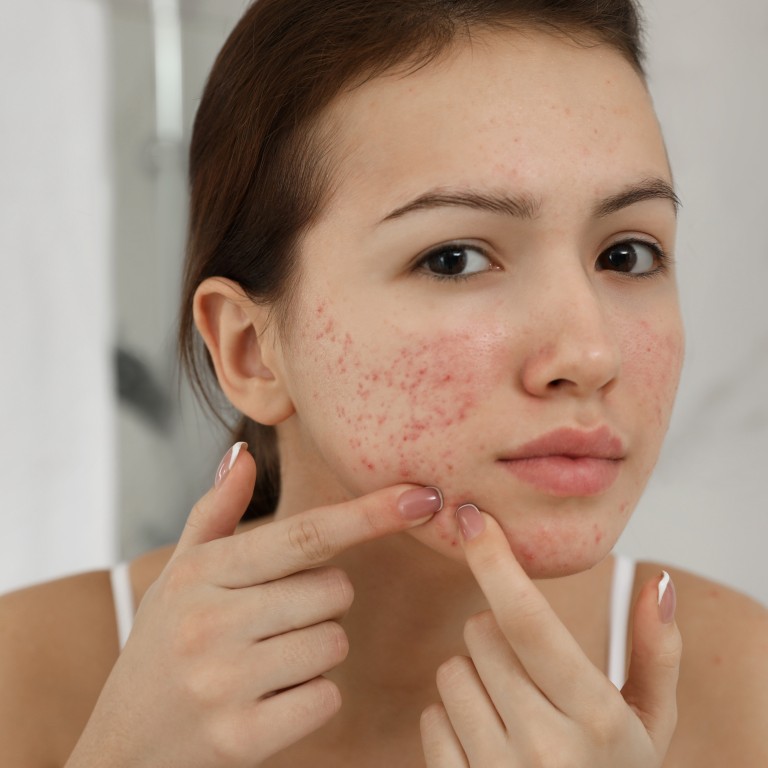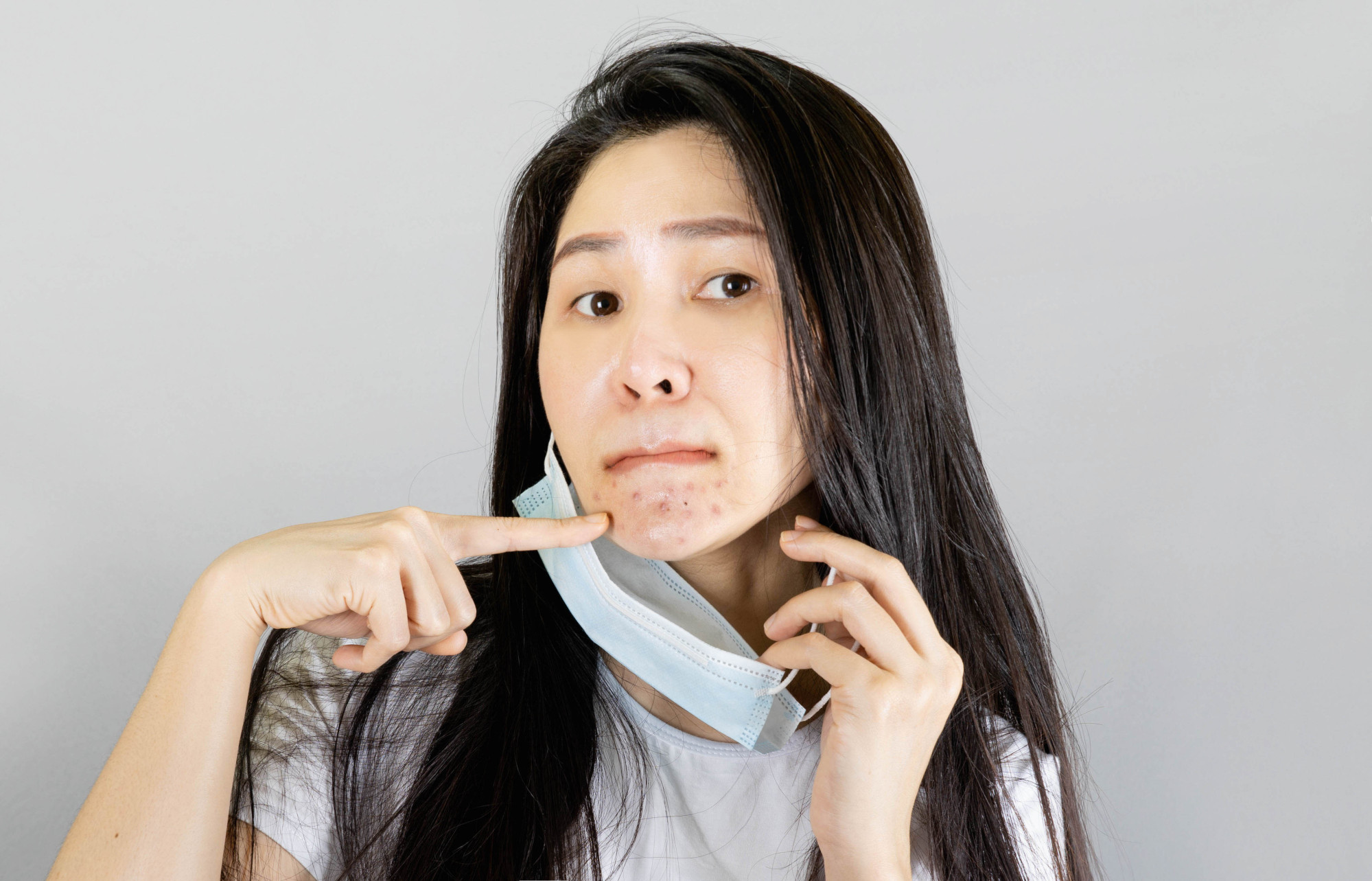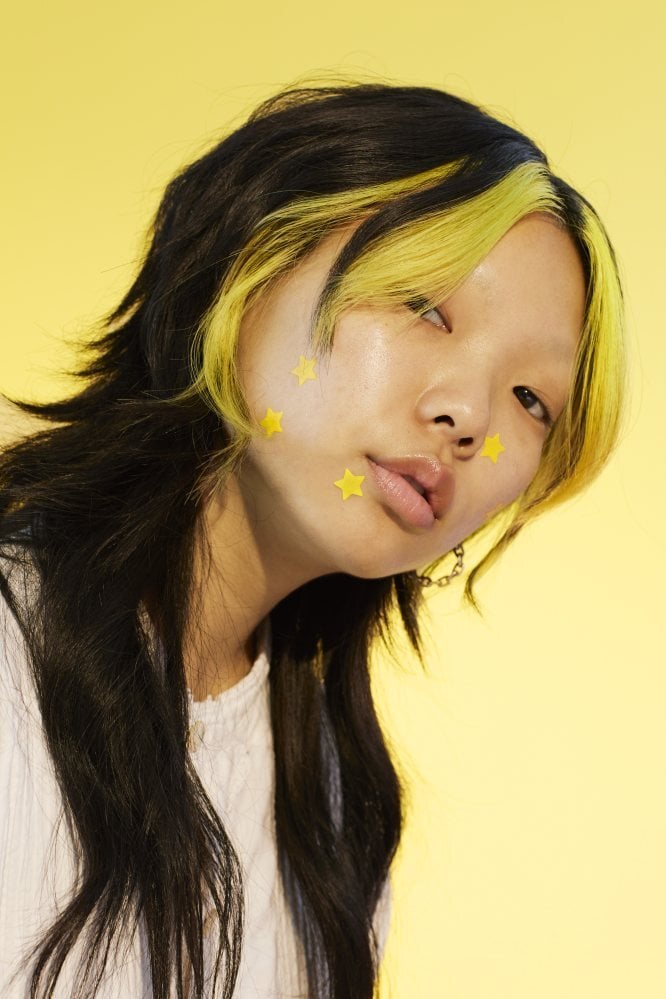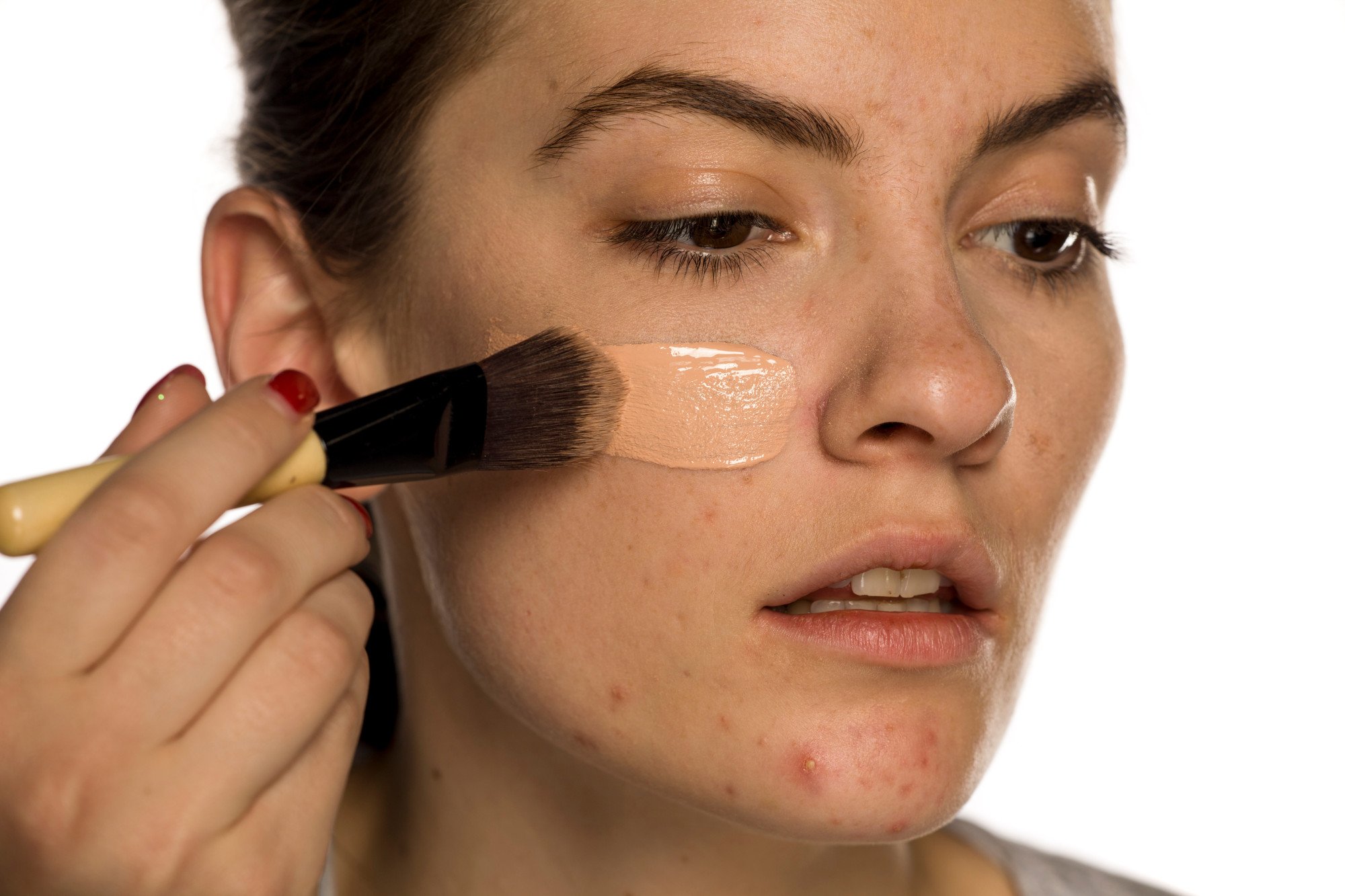
Explainer | Acne treatment myths busted, from breakouts caused by greasy foods and make-up to popping spots and toothpaste to make them go away
- Acne is becoming increasingly common for adults, perhaps because of a combination of hormonal fluctuations, diet and stress, one doctor says
- Covering your pimple in toothpaste has gone viral on social media but it can actually irritate your skin – instead, consider using a hydrocolloid pimple patch
Teenagers are the only ones who are prone to breakouts, and washing your face frequently can clear zits faster.
These are only some of the many myths we’ve heard about our skin.
In honour of Acne Awareness Month in June, three skincare experts are setting the record straight and debunking mistaken beliefs about our skin.

Only teenagers get acne
“In some cases, patients may have never had any breakouts at all during adolescence. We don’t quite understand why this is happening, but it likely has to do with a combination of hormonal fluctuations, diet and stress.”
Skincare for men: an expert's guide
Wash your face more for less acne
Even those who wash their face regularly and follow a strict beauty regimen are susceptible to breakouts. Cassandra Bankson, a medical aesthetician with more than 1 million YouTube subscribers, says constantly washing your face can actually exacerbate existing acne.
“Your skin has an acid mantle which protects your skin. If you overly wash your skin, you can tear that off and it can cause you to break out more and have a damaged skin barrier.”
Dr Muneeb Shah, a dermatology resident doctor with more than 3 million TikTok followers, emphasises that having acne is not in anyone’s control.
“It doesn’t have to do with hygiene. It doesn’t have to do with how much water you drink. So it’s important to de-stigmatise the fact that acne is not the person’s fault.”
Pop your pimples so they go away faster
Is it a good idea to pop a pimple on your own? Shah says no.
“Clear the skin with an alcohol swab, put on gloves, poke a tiny hole in the centre and squeeze upwards with two Q-tips to avoid infecting the area,” Shah recommends.
A skincare expert shares tips for a healthy acne-free face
Greasy foods and dairy make you break out
Though greasy foods like French fries and pizza along with dairy are commonly associated with acne, it’s important to remember correlation does not equate to causation.
“It’s a myth that greasy foods cause acne breakouts, unless the grease gets on your fingers which then touches your face,” Zeichner says, noting that foods high in sugar and starch have been associated with breakouts.
However, Bankson cautions that not everyone’s skin will react this way to certain foods.
“There are some people who are sensitive or allergic to dairy or oily foods which may cause irritation to the skin. But it’s not an overarching thing for everyone.”
Toothpaste on your zit makes it go away
Though this hack of covering your pimple in toothpaste has gone viral on social media, it can actually irritate your skin. According to Shah, this acne myth originated when toothpaste used to contain an antibacterial agent called triclosan, which was removed from most toothpastes in 2019.
“Now that it doesn’t have that antibacterial agent, it’s more likely to irritate the skin since toothpaste is made for your mouth and to remove plaque off your teeth,” he says.
“They keep you from picking your pimple while also sucking out that goop from the zit.”

Face mapping predicts breakout causes
Face mapping refers to the idea that the location of zits on your face can indicate the cause. For instance, breaking out on your nose indicates heart problems while breaking out on your cheek indicates stomach issues.
This, too, is a myth.
“When you think about our body, it works as an entire system. Our lungs get us oxygen which goes to the blood and brain. If our heart stops working, so does everything else. The same goes for our skin,” Bankson says. “So, just because you’re having gastrointestinal issues or kidney issues does not mean it’s going to show up in a certain place on your face.”
Acne: why some adults have it and how to treat it
Make-up makes a breakout worse
Heavy foundation or concealer is not the cause of acne. However, experts say it’s the clogged pores created by wearing make-up overnight that can contribute to those pesky zits.
“If your make-up is creating a film on your skin and you’re wearing it in your sleep then, yes, it can lead to clogged pores, which often cause irritation and breakouts. But make-up itself is not the cause of acne,” Bankson says, reminding readers to properly take off their make-up before going to bed.

The sun will clear up your skin
This is both true and false. Zeichner acknowledges that the sun’s UV light exposure does have anti-inflammatory effects on the skin, but the risks associated with it outweigh the potential benefits of temporarily clearing your skin.
How to treat adult acne, and the new ‘maskne’
Clean, natural beauty products are always better
Many of us have been warned chemicals are bad. But Bankson says this statement is problematic and misleading.
“There are definitely things that do and don’t belong on our face and on our skin, but everything is a chemical – including water and air. So not all chemicals are bad in skincare, and just because a product says ‘clean’ or ‘natural’ doesn’t mean it’s better for acne.”
Some acne fighting ingredients she recommends include salicylic acid, benzoyl peroxide and sulphur.

